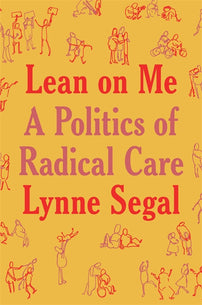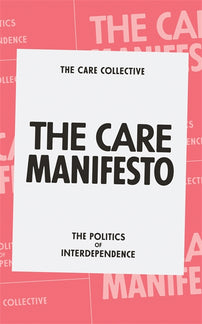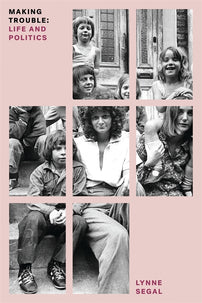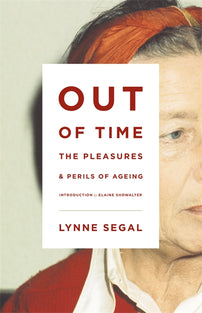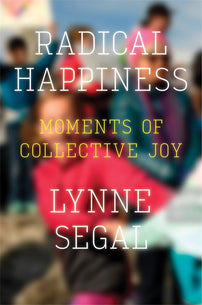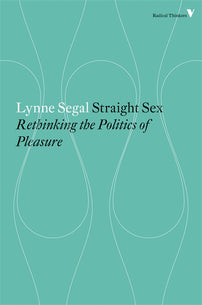Lean on Me: a Letter from the Editor
One of our November Verso Book Club selections.
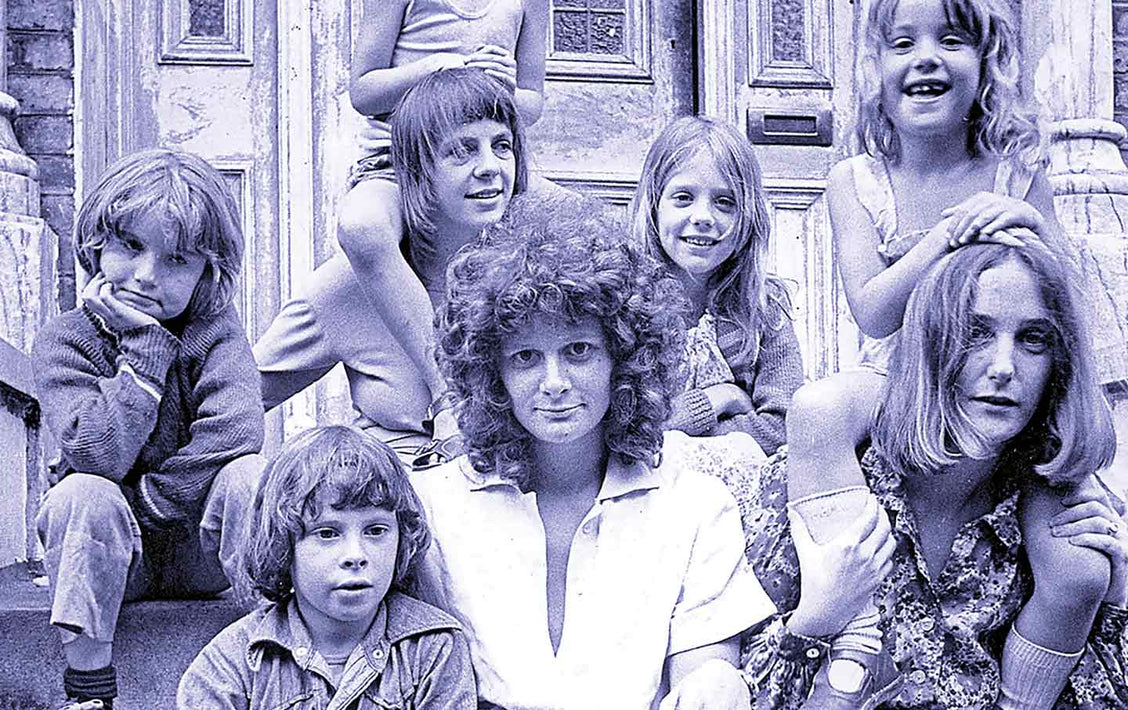
There is a wonderful photo of Lynne Segal (above) sitting outside her house in north London. It looks like the seventies, deep in the moment of the second-wave feminist movement. The house is a commune, as she describes both in her memoir, Making Trouble: Life and Politics (part of our Feminist Classics series) and her new book Lean On Me: A Politics of Radical Care. There are children and mothers also on the step. They are living together, carving out a life where the personal is political, or perhaps where the political is so engrained and intimate that it permeates every part of life. It is a vibrant photograph, on the edge of chaotic: home haircuts, recycled clothes, and collective parenting. Children are sitting on the shoulders of the adults like climbing frames.
In a piece that Lynne is writing on communal living during this time, she notes:
This perpetual churn of people meant that my home would remain a vibrant hub of feminist and community activism in this heyday of women's liberation. The basement and attic always occupied with bodies, chat, and political arguments. We were all busy launching feminist battles on every front, trying to build a movement that would be inclusive, while also battling to create a women-friendly, broader left culture and activism.
Two more photos for you:


Here, one can see her infectious joy. The first on a march, an expression of her lifelong commitment to protest. The second, on the dance floor (with Stuart Hall), a place of collective joy. Lynne’s life work seems to be captured in these images. She has consistently committed herself to a life of liberatory politics. It is a life of protest, but also one of mutual care. It is about finding solidarity in times of trouble. And this is why Lean on Me is such an important book for our times, and I look forward to sharing it with you.
I have now worked with Lynne on a number of books over the last decade. The first was Out of Time: The Pleasures and Perils of Ageing, which looked at the politics of ageing. It still remains a book way ahead of its time, taking seriously the rights of older generations in an ageing world. Then we worked on Radical Happiness: Moments of Collective Joy, which articulated Lynne’s very profound commitment to collective action and joy as two expressions of our profound desires to be together. She was also one of the co-authors of best-selling The Care Manifesto: The Politics of Interdependence, that has now been translated into numerous languages, and has set the agenda for the growing interest in the political of mutuality.
Her new book and now part of the Verso Book Club offering, Lean On Me, is a thoughtful mediation on what makes a good life. In it Lynne argues that it is the bonds that bind us together, the moments of dependence, and day-to-day stitching of solidarities that truly matter. Motherhood, education, feminism, elderly care, global warming - the question of what we owe each other finds its answer in the simple commitment to be there for others. This is at the heart of her politics.
Lynne makes her argument through her own lived experiences. It is not an autobiography but it is proof that a radical life is a rich forcing ground for the examination for what works, and what does not. Lessons learned and ready to be shared. This is perhaps the definition of a political life. In her chapter on ‘What is a Mother?’ Lynne braids her own experiences of being a daughter of a doctoring mother, who had little time to put food on the table:
Almost from the moment I was born, my mother spent her days away from our shared home. As a hard-working gynaecologist, she returned home only at the close of the day, with little time left for her own children. Before long she’d be off again, pleased to be summoned by a call from elsewhere. On the way out she would scoop up whatever we children had not yet eaten. Often, she did not sit down at all, hovering by the phone, hoping for the summons, which was even more exciting if it was ‘an emergency’.
With her own experiences of becoming pregnant at twenty-five and soon moving to London with a son and a briefcase. Thus began a lifelong lesson:
And what I have learned, from the difficulties I faced, and increasingly observe all around me, is that our ability to care well for others whatever our relation to them, requires help and support from those around us, as well as feeling cared for ourselves.
This is then intertwined with thought on Virginia Woolf, Judith Butler, R. D. Laing, the feminist conference at Ruskin College, Oxford in 1970, Anne Oakley, and returning to the house in north London, above, where experiments in communal living and collective mothering were practised. It is proof that these ideas are most true when they are folded into real life. As she writes in her chapter about the experiences of being on the frontline in the 1970s:
Feminists recalling those years almost all agree that it was women’s liberation that enabled them to make sense of the world, live with contradictory emotions, and embrace a politics that connected their public and private lives. Above all it offered a sense of connection and end to loneliness. We learned how to lean on each other, and this changed everything.
It is a lesson that we much hold onto again today.
Leo Hollis, Editorial Director
London, October 2023
Lean On Me: A Politics of Radical Care is one of our November Verso Book Club reading selections! Find out more about the Verso Book Club here.
[book-strip index="1" style="buy"]
